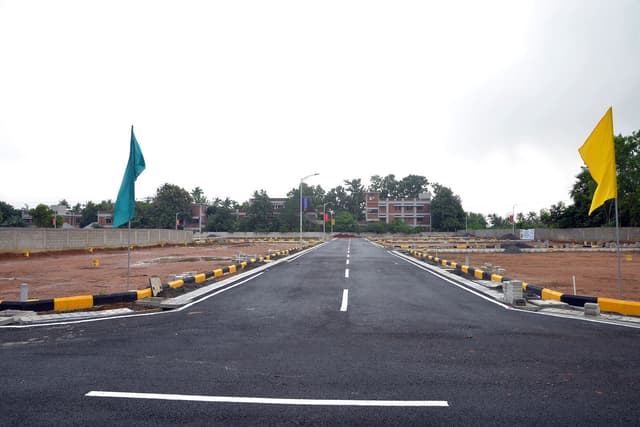Loading post…
Understanding Your Rights and Responsibilities: The Landlord-Tenant Legal Framework in India

Understanding the legal framework governing landlord and tenant interactions in India is essential for smooth rental operations. As disputes become more common, it's vital for landlords and tenants to have a clear grasp of their legal rights and responsibilities. This knowledge not only helps prevent conflicts but also ensures that any issues that arise can be resolved fairly and efficiently. This article aims to demystify the legalities of renting in India, offering landlords guidance on how to address tenant disputes properly.
Legal Rights of Tenants in India
In India, tenants are protected under various state and national laws, including the Rent Control Act of 1948, to ensure they can occupy rental properties under fair and just conditions. These laws safeguard tenant rights and promote equitable landlord-tenant relationships.
Key Legal Rights of Tenants in India:
● Fair Rent: Tenants are entitled to rent properties at rates that align with market prices for similar properties in the area. Rent control laws set limits on what landlords can charge, and tenants can contest excessive rent in Rent Courts. In metro cities the monthly rent of gated community apartments are usually higher based on the provided amenities.
For example, in Chennai the monthly yield of rental flats in OMR vairies between 15 and 30k for a 2bhk apartments based on the age of the property, location, furnishing and amenities provided . You can check the ongoing rent in a locality in any online portals like findbhk, nobroker, 99 acres and magicbricks.
● Habitability: Tenants can inspect properties before moving in to ensure they meet safety and habitability standards. They can request necessary repairs and, if specified in the lease, may perform repairs themselves and seek reimbursement.
● Privacy: Tenants have the right to privacy, with landlords required to provide at least a day's notice before visiting, except in emergencies.
● Rental Agreement Compliance: Both parties must adhere to the rental agreement terms. Tenants can take legal action if landlords fail to fulfill their obligations, potentially leading to contract termination and property vacation.
● Negotiation of Rental Terms: Tenants can negotiate and seek adjustments to the terms of the rental agreement to ensure fairness before finalising.
Understanding and respecting these rights not only helps landlords maintain good relationships with their tenants but also minimises disputes and stabilises the rental market.
Where Can a Landlord File a Complaint Against a Tenant in India?
Landlords in India have several legal avenues to file complaints against tenants when disputes arise, ensuring they take effective legal actions tailored to the nature of the issues encountered.
Legal Avenues for Landlords to File Complaints:
● Police Station: Suitable for criminal matters like property damage, theft, or illegal activities, where landlords can file a First Information Report (FIR).
● Civil Court: For more complex disputes such as eviction for non-payment of rent or significant property damage, filing an eviction suit in a civil court is advisable, often requiring legal assistance.
● Local Authorities: Issues concerning building codes, safety regulations, or unauthorised property use can be addressed to municipal corporations or similar bodies.
● Consumer Forum: For disputes over service provisions, such as unpaid utilities included in the rental agreement, complaints can be lodged at a consumer forum or through the National Consumer Helpline for expedited resolution.
These channels ensure that landlords can enforce their rights and resolve disputes effectively, depending on the specific circumstances and nature of the issue.
Rent Courts for Landlord-Tenant Disputes
The establishment of Rent Courts under India's Model Tenancy Act, 2021, represents a significant enhancement in the management of landlord-tenant disputes. These specialised quasi-judicial bodies are tasked with efficiently resolving rental issues, such as evictions, rent payments, and agreement terms, easing the load on traditional courts and promoting a more balanced rental market.
Key Features of Rent Courts:
● Specialised Jurisdiction: Govern all matters related to rental disputes.
● Authority: Empowered by state and Union Territory governments, staffed by members of the State Higher Judicial Service.
● Speedy Dispute Resolution: Required to initiate proceedings within 30 days of receiving a complaint, with documented reasons for any delays.
● Enforcement Powers: Enforce their decisions by granting possession of property, attaching bank accounts, or appointing legal experts to execute orders.
● Appeals Process: Decisions can be appealed to the Rent Tribunal, ensuring fairness and thorough review.
● Rent Courts play a crucial role in stabilising the rental housing sector, particularly in urban areas, by offering a reliable and expedited process for adjudication, which encourages fair practices and reduces potential conflicts.
Is the landlord Responsibile for Tenant's Actions?
In a notable judgment, the Bombay High Court stated that landlords can be held responsible for illegal activities conducted on their leased premises. This decision emphasises that leasing property under a license agreement does not equate to relinquishing all control or oversight of the property. The court particularly highlighted a case where a spa, operating from leased premises, was involved in unlawful activities. The judgment suggested that the property owner should have been aware or could reasonably have been expected to know about the nature of the activities being conducted. Thus, under certain circumstances, landlords in India may indeed be held accountable for their tenants' actions, especially if it appears they could have had knowledge of or prevented those activities.
Can Landlords Force a Tenant to Leave?
In India, eviction laws strictly regulate landlords' ability to remove tenants to prevent unfair displacement. Landlords must follow a detailed legal process and can only evict tenants based on valid grounds outlined by law.
Key Points on Eviction Laws in India:
● Legitimate Grounds for Eviction: Evictions must be justified by reasons like non-payment of rent, property damage, violations of the rental agreement, or illegal activities.
● Notice Requirements: Landlords must provide written notice, allowing time for the issue to be resolved. For long-term tenants (over five years), a six-month notice may be required without specifying a reason, following local regulations.
● Legal Eviction Process: If a tenant does not leave post-notice, landlords must file an eviction lawsuit in civil court. A judge will then issue a final order if the tenant still refuses to vacate.
● Protection Against Unjust Eviction: Tenants can contest unjust evictions through legal channels or request an adjournment to prepare a better defence.
These regulations ensure a fair process, protecting tenant rights while allowing landlords to enforce property rules.
Conclusion
Effectively managing landlord-tenant relationships in India hinges on a solid understanding of legal rights and procedures. Landlords should ensure they comply with laws that protect tenant rights, such as fair rent and privacy, while also utilising established legal avenues like Rent Courts for dispute resolution. Evictions must be legally justified and follow strict protocols to ensure fairness. By adhering to these guidelines, landlords can prevent disputes and foster a stable and equitable rental environment, benefiting all parties involved.








